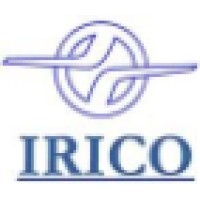
IRICO
Iranian Golden Goal Group (IGGG) with long-lasting experience and service as a general contractor with the aim of implementing constructional projects in the fields of: oil, gas , petrochemical industries, steel manufacturing, railway transportation, construction and installing plants. IGGG top managers, decided to buy 100% stocks of IRICO and become one of the affiliated companies of Group. IRICO is a pioneer of design and manufacture different types of passenger coaches (such as regional passenger train, mass transit system, Light Rail Vehicle and Elevated Light Rail Transit) and freight wagons in Iran with production capacity of almost 200 units passenger cars and 500 Freight wagons per year. Some of the IRICO's productions are : Regional DMU in contract with Hyundai Rotem, Metro cars and diffrent typpes of Freight wagons .






